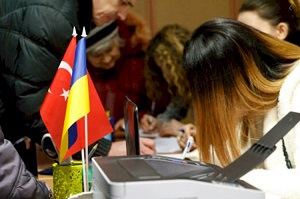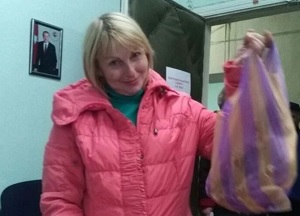Denmark: A Comprehensive Look at Its Socioeconomic and Cultural Landscape
Political and Social Structure

Denmark: A Comprehensive Look at Its Socioeconomic and Cultural Landscape
Denmark, a small but influential Scandinavian country, is often lauded for its high quality of life, robust social welfare system, and rich cultural history. With a population of around 5.8 million, Denmark consistently ranks as one of the happiest countries in the world, thanks to its strong sense of community, effective governance, and commitment to social equality.
Political and Social Structure
Denmark operates as a constitutional monarchy with a parliamentary system. The Queen, currently Margrethe II, serves as the ceremonial head of state, while political power rests primarily in the Folketing (the Danish parliament) and the Prime Minister. Denmark is a member of the European Union, although it has retained its own currency, the Danish krone (DKK), rather than adopting the euro.
The country's social democracy model, with its strong welfare state, ensures universal healthcare, free education, and generous unemployment benefits. The high levels of taxation that support this system are generally accepted due to the perceived fairness and quality of services provided.
Economy
Denmark boasts a modern, high-income economy that is driven by services, manufacturing, and international trade. The country has a highly developed agricultural sector but is perhaps best known for its leadership in pharmaceuticals, renewable energy, and maritime shipping. Major companies such as Maersk (shipping), Novo Nordisk (pharmaceuticals), and Vestas (wind energy) are key players on the global stage.
Denmark’s labor market operates under the "flexicurity" model, a blend of labor market flexibility and economic security. This ensures that while it is relatively easy to hire and fire employees, workers are provided with unemployment benefits and assistance with re-training, allowing for high levels of employment security and mobility.
The Danish economy is heavily export-driven, with Germany, Sweden, the United States, and the UK being its largest trading partners. Renewable energy, particularly wind energy, plays a pivotal role in Denmark's economy, with the country aiming for carbon neutrality by 2050.
Education and Innovation
Denmark is well-regarded for its education system, which is free from primary school through university. The system emphasizes independent thinking, creativity, and critical problem-solving skills. Danish universities like the University of Copenhagen and the Technical University of Denmark rank highly for their research output, particularly in fields such as sustainability, biotechnology, and engineering.
Denmark has also invested heavily in digital infrastructure, making it a leader in digital government services. It ranks high in innovation indices due to its supportive environment for research and development, driven by public and private partnerships.
Cultural Landscape
Danish culture is deeply rooted in its Viking past, but today it is more associated with its contributions to design, literature, and cinema. Danish design, known for its minimalism, functionality, and quality, is globally recognized, with brands like Bang & Olufsen and Georg Jensen standing as cultural icons.
Danish cinema has gained international acclaim through directors like Lars von Trier and Susanne Bier, while Denmark’s TV series, such as "Borgen" and "The Killing," have attracted global audiences.
Culinary culture in Denmark has also reached new heights, led by restaurants like Noma, which has been awarded multiple times as one of the best restaurants in the world. Traditional Danish cuisine, characterized by dishes like smørrebrød (open-faced sandwiches) and frikadeller (meatballs), remains popular, while the New Nordic food movement focuses on sustainability and local ingredients.
Sustainability and Environmental Leadership
Denmark is often considered a global pioneer in environmental sustainability, particularly in renewable energy. Wind power alone accounts for over 50% of the country's electricity consumption, and Copenhagen, the capital, has set the ambitious goal of becoming carbon-neutral by 2025.
Cycling is a way of life for many Danes, with over 12,000 km of cycle tracks crisscrossing the country. Copenhagen has more bicycles than cars, further supporting Denmark’s green credentials.
The Danish government also invests in innovative climate technologies and sustainability initiatives, encouraging international collaboration on projects aimed at combating climate change. Denmark’s high recycling rates and waste-to-energy plants are part of its comprehensive environmental strategy.
Social and Cultural Values
Denmark’s societal values center around the concept of hygge, a word that loosely translates to a cozy, contented way of life. Danish society prioritizes work-life balance, with a typical workweek averaging 37 hours and ample vacation time. Family and community are highly valued, and Denmark's egalitarian ethos promotes gender equality, diversity, and inclusion.
The country also ranks highly on indices of press freedom, gender equality, and human rights. Danish citizens enjoy a high level of trust in their institutions and in one another, contributing to a stable and cohesive society.
Challenges Ahead
While Denmark is often cited as a model nation, it does face challenges. These include integrating immigrant populations, addressing housing affordability in cities like Copenhagen, and managing the financial sustainability of its generous welfare state in the face of an aging population. Furthermore, while the country is known for its environmental leadership, balancing industrial growth with climate goals remains an ongoing task.
Conclusion
Denmark exemplifies a country where social welfare, environmental sustainability, and innovation coexist harmoniously. Its robust economy, egalitarian society, and rich cultural history make it a unique model of prosperity and well-being in the modern world. However, as with any nation, it faces ongoing challenges, but the Danish commitment to cooperation, innovation, and equality ensures that it will continue to play a leading role on the global stage.






































